Belarus Says To Hold EU Talks On Migrant Crisis
Belarus announced talks Wednesday with the EU over thousands of migrants massed at the Polish border, a volatile crisis the West says is President Alexander Lukashenko's revenge for sanctions on his regime.
An EU spokesman spoke of "technical talks" and urged Minsk to grant humanitarian access to the border area..
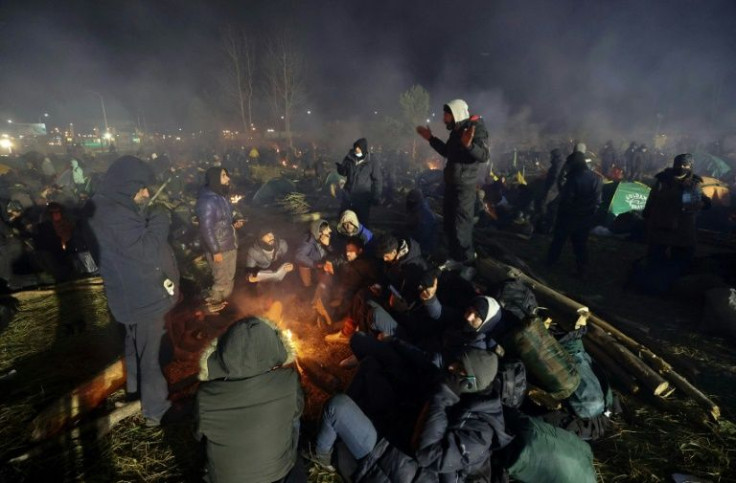
The statement from Minsk came after a telephone conversation between Lukashenko and German Chancellor Angela Merkel on the crisis.
Berlin said Merkel and Lukashenko had discussed Europe providing support in the form of humanitarian aid and helping return the migrants.
Thousands of migrants, mainly from the Middle East, are camped at the border.
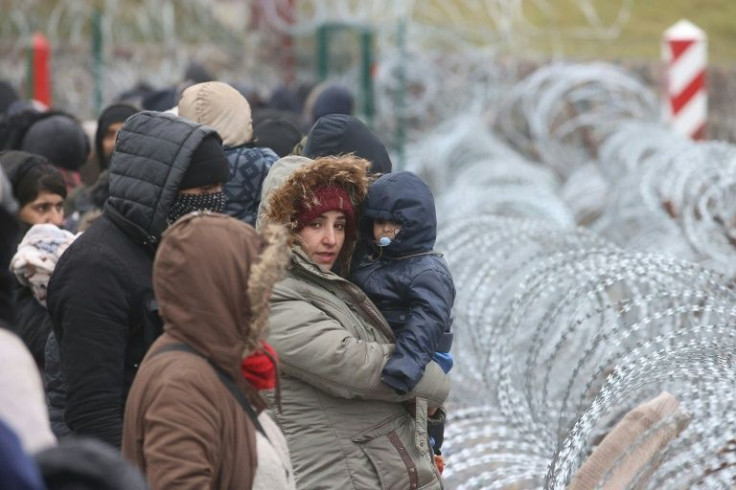
Lukashenko and his main ally Russian President Vladimir Putin have rejected the accusations that Belarus has engineered the crisis, and criticised the EU for not taking in the migrants seeking to cross over into Poland.
Lukashenko's press service said the Belarus leader and Merkel "agreed that the problem as a whole will be brought up to the level of Belarus and the EU.
"Relevant officials to be determined from both sides will immediately start negotiations to resolve the existing problems," it added.
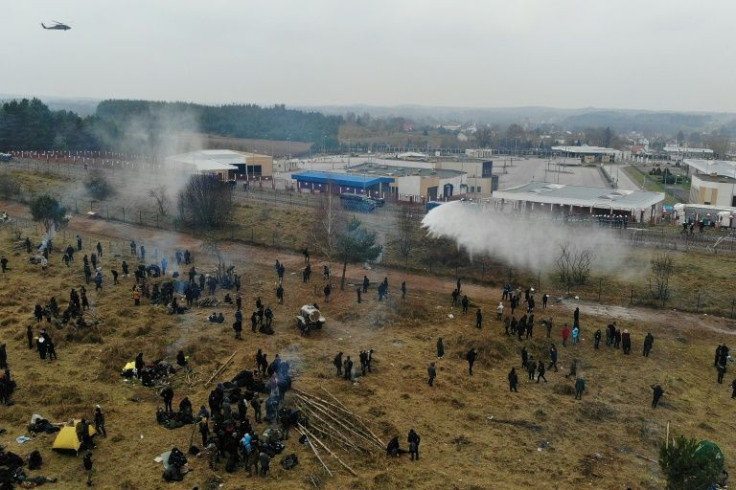
Merkel's spokesman Steffen Seibert said the German leader had "underlined the need to provide humanitarian care and return options for the affected people".
Later Wednesday, EU spokesman Eric Mamer said the contacts would be limited to discussions with Belarus and UN agencies on how best to get the migrants back to their countries of origin.
"Belarus must grant access for humanitarian support and provide shelter for migrants in the country," Mamer tweeted.
This was the second call between Lukashenko and Merkel this week and the Belarus strongman's first with a Western leader since his regime launched its crackdown. Putin had urged EU leaders to talk directly to Lukashenko.
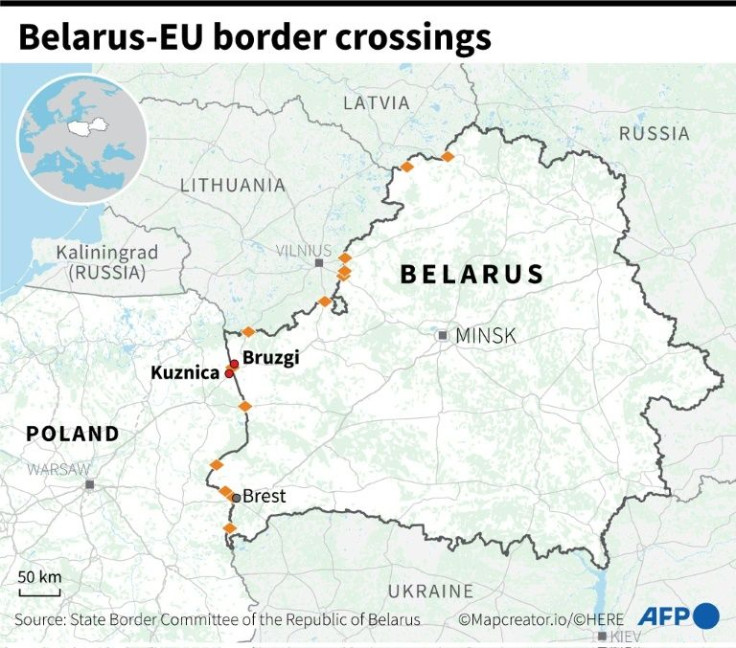
Kremlin spokesman Dmitry Peskov on Wednesday welcomed contact between Belarus and the EU, calling it "very important".
But Polish government spokesman Piotr Muller said the call earlier this week between the Belarusian and German leaders was "not a good step" and appeared to be "an acceptance of his choice", referring to Lukashenko.
Earlier Wednesday, Seibert said it was "useful" to speak with Minsk "to improve this humanitarian situation", even if the talks were with a leader whose legitimacy Europe and Germany do not recognise.
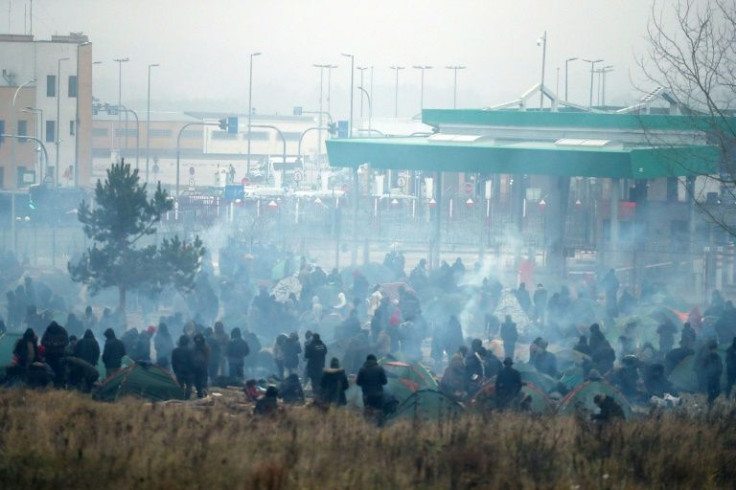
Western countries have also accused Moscow of helping orchestrate the crisis.
On Tuesday, when Polish forces used tear gas and water cannon to deter stone-throwing migrants, the border guard service said it had detected 161 illegal crossing attempts that day, including "two forceful attempts".
Polish Defence Minister Mariusz Blaszczak said Wednesday there had been further attempts overnight.
"We have to prepare for the fact that the situation on the Polish-Belarusian border will not be resolved quickly," Blaszczak told Poland's Radio Jedynka.
"We have to prepare for months or even years,"
The West has accused Belarus of luring thousands of migrants, many from Iraq and Syria, with the promise of an easy crossing into the EU and then forcing them to stay at the border.
Eastern EU members Latvia, Lithuania and Poland have all refused to take in the migrants, leaving many stranded for weeks in forested borderlands.
Following pressure from the EU, several airlines have agreed to stop transporting would-be migrants to Belarus.
Iraq has also said it will start voluntary repatriations of its citizens from Belarus this week. The EU border agency Frontex is working with the Polish and Iraqi authorities on arranging charter flights from Poland.
Aid groups say at least 11 migrants have died since the crisis began in the summer and have called for a humanitarian response to the problem.
Visiting areas near the border on the Polish side Tuesday, the Council of Europe human rights commissioner Dunja Mijatovic said: "We need to find a way to de-escalate, to make sure the focus is really to stop the suffering."
The Belarus Red Cross on Wednesday said that some 1,000 migrants were being put up in a "logistical centre" close to the Bruzgi-Kuznica checkpoint.
Another 800 were still in a makeshift camp near the border, Russian news agency Ria Novosti reported.
The Belarusian health ministry said it had hospitalised six people, including four children, from the Bruzgi camp.
© Copyright AFP {{Year}}. All rights reserved.





















